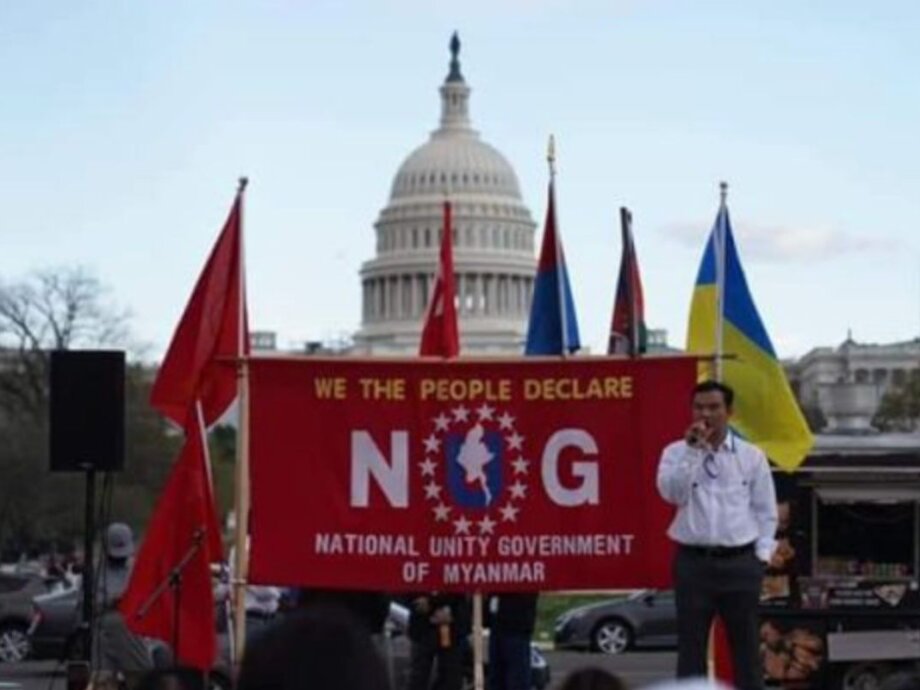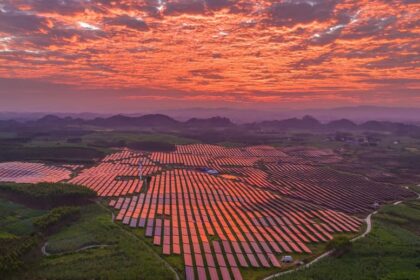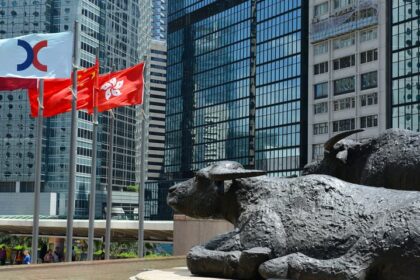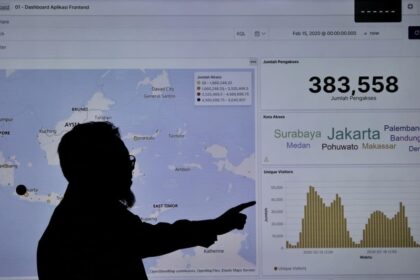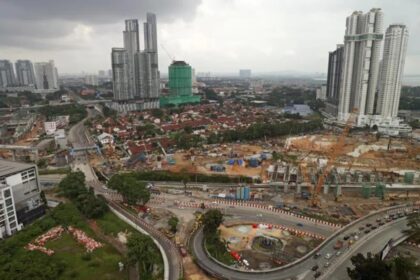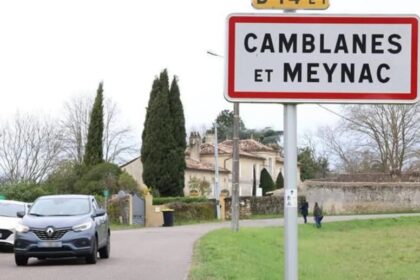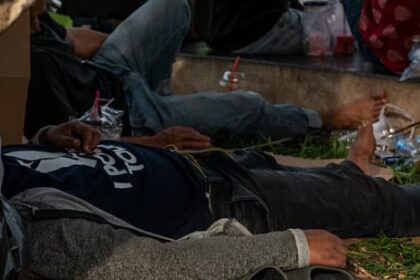Myanmar’s Political Crisis: The Road to the 2025 Elections
Myanmar stands at a critical crossroads as its military regime, recently rebranded as the State Security and Peace Commission (SSPC), prepares for general elections in December 2025. This move comes after the abrupt end of a four-and-a-half-year state of emergency, a period marked by civil war, mass displacement, and the systematic dismantling of democratic institutions. The exiled National Unity Government (NUG) and its allies, once seen as the torchbearers of Myanmar’s democratic aspirations, now face a crisis of relevance and influence, both domestically and on the global stage.
- Myanmar’s Political Crisis: The Road to the 2025 Elections
- How Did Myanmar Get Here? A Brief Background
- Junta’s Election Strategy: Manufacturing Legitimacy
- The Exiled Opposition: Diminishing Influence and Internal Challenges
- Military Tactics: Repression, Concessions, and International Maneuvering
- On the Ground: Resistance, Federalism, and Humanitarian Crisis
- Geopolitical Dynamics: The Roles of China, Russia, and the West
- What’s Next? Scenarios and Implications
- In Summary
At the heart of the unfolding drama is a contest for legitimacy: the military junta seeks to manufacture it through tightly controlled elections, while the opposition struggles to convince the world—and its own people—that genuine democracy remains possible. The outcome will shape Myanmar’s future and could set a precedent for how the international community responds to authoritarian regimes seeking to cloak themselves in the trappings of democracy.
How Did Myanmar Get Here? A Brief Background
Myanmar’s current turmoil began with the military coup of February 2021, which abruptly ended a decade of tentative democratic reforms. The coup ousted the elected government led by Aung San Suu Kyi’s National League for Democracy (NLD), which had won a landslide victory in the 2020 elections. The military justified its takeover by alleging electoral fraud, claims widely dismissed as baseless by both domestic and international observers.
The coup triggered nationwide protests, a brutal crackdown, and the emergence of a broad-based resistance movement. This included the formation of the NUG by ousted lawmakers and the rise of the People’s Defence Forces (PDF), a network of civilian militias allied with longstanding ethnic armed organizations. The resulting civil war has fractured the country, with the military controlling major cities and lowland regions, while opposition forces hold sway in vast border areas and ethnic minority territories.
Since 2021, the junta has imposed severe restrictions on political freedoms, civil society, and the media. Thousands have been killed, tens of thousands arrested, and millions displaced. The economy has collapsed, poverty has soared, and basic services have broken down, especially in conflict zones. The regime’s attempts to restore order have relied on violence, repression, and a series of legal maneuvers designed to entrench military rule.
Junta’s Election Strategy: Manufacturing Legitimacy
In July 2025, the SSPC announced the end of emergency rule and set the stage for national elections. This move was accompanied by a controversial census, conducted under military escort and marred by violence, coercion, and incomplete coverage. Critics argue that the census, like the planned elections, is a tool for the regime to claim legitimacy while excluding large swathes of the population living outside its control.
The regime’s Union Election Commission has registered 55 political parties and is trialing electronic voting machines in areas it controls. However, new electoral laws ban anyone with criminal convictions—including virtually all opposition leaders—from participating. The NLD and dozens of other parties have been dissolved, and the military retains a constitutionally guaranteed 25% of parliamentary seats. The electoral system has been changed to proportional representation in the upper house, further tilting the playing field in the junta’s favor.
Human rights groups and international election monitors have unanimously condemned the process as a sham. Participation is often coerced, with harsh penalties—including prison sentences and even the death penalty—for those deemed to obstruct the electoral process. The regime’s strategy is clear: use the veneer of elections to entrench authoritarian rule and seek international recognition.
The Exiled Opposition: Diminishing Influence and Internal Challenges
The NUG and its partners, including the National Unity Consultative Council (NUCC), have consistently rejected any election based on the military-drafted 2008 constitution. Their stance is that genuine democracy cannot be restored through a process controlled by the very forces that overthrew it. Yet, as the election approaches, the opposition’s voice has grown quieter, and its ability to shape events—either inside Myanmar or abroad—has waned.
Several factors contribute to this diminishing influence:
- Lack of International Recognition: Despite widespread sympathy, the NUG has failed to secure formal recognition from major powers or the United Nations. Western nations have imposed sanctions and offered rhetorical support, but have stopped short of concrete action or military aid. Meanwhile, China, Russia, and India have signaled willingness to engage with the junta, prioritizing stability and their own interests over democratic principles.
- Fragmented Resistance: The opposition is a loose coalition of exiled politicians, ethnic armed groups, and grassroots activists. While united in their rejection of military rule, they differ on strategy, leadership, and the vision for a future federal Myanmar. Efforts to create unified structures, such as the Joint Coordinating Body (JCB) and the Articles of Federal Transitional Arrangement (AFTA), have made some progress but face skepticism about their effectiveness.
- Resource Constraints: The NUG and its allies operate with limited financial and logistical resources. International aid has been cut or redirected due to shifting global priorities, and the opposition lacks the means to provide sustained support to defectors, displaced civilians, or fighters on the ground.
- Diplomatic Fatigue: Global crises—from the war in Ukraine to tensions in the South China Sea—have diverted attention from Myanmar. ASEAN’s peace initiatives have stalled, and Western governments appear increasingly resigned to the junta’s consolidation of power.
As a result, the NUG’s revolutionary diplomacy has struggled to gain traction. Its calls for international intervention, sanctions, and support for the resistance have largely gone unanswered. Even within Myanmar, the opposition faces challenges in coordinating military and political strategies, especially as the conflict becomes more decentralized and localized.
Voices from the Opposition
Duwa Lashi La, acting president of the NUG, has repeatedly emphasized the need for outside support and rejected any dialogue with the junta under current conditions. In a recent interview, he stated:
“It is not possible to return to democracy through dialogue with the military junta. The military is stalling to maintain control and has committed crimes against the people. We need international financial and possibly military support to succeed.”
He also highlighted the NUG’s efforts to establish local administrations and provide basic services in areas under its control, but acknowledged the limitations imposed by scarce resources and lack of recognition.
Military Tactics: Repression, Concessions, and International Maneuvering
The junta’s approach to the upcoming elections is twofold: intensify repression to suppress dissent, while offering strategic concessions to divide and co-opt the opposition. In September 2024, for the first time since the coup, the military publicly called on opposition forces to lay down their arms and participate in the elections as political parties. This echoed tactics used before the 2010 elections, which led to a brief period of semi-civilian rule but failed to deliver genuine democracy.
The offer was swiftly rejected by opposition leaders and ethnic armed groups, who see it as a ploy to legitimize military rule without addressing the root causes of conflict. As Nay Phone Lat, a spokesman for the NUG, pointedly asked:
“Who exactly failed to resolve the political issues through political means? The military should step away from politics, accept the drafting of a new Constitution to establish a federal union, and be accountable for all war crimes committed.”
Despite these rejections, the junta may attempt to soften its image by releasing political prisoners or making other symbolic gestures in the run-up to the election. It has also hired a Washington-based public relations firm to improve its standing in Western capitals, though there is little evidence of a shift in diplomatic attitudes.
International Responses: Between Criticism and Pragmatism
The international community’s response to Myanmar’s election plans has been mixed. Western governments, including the United States, the European Union, and Japan, have publicly criticized the junta’s actions and called for the release of political prisoners and restoration of democracy. However, these statements have rarely been backed by meaningful consequences or new sanctions.
Japan’s Foreign Minister IWAYA Takeshi, for example, issued a statement expressing concern about the elections and urging the junta to end violence. Yet, as analysts note, such diplomatic language—while principled—may not be forceful enough to deter other nations from recognizing the results or engaging with the regime.
China, Russia, and India have taken a more pragmatic approach. China, in particular, has positioned itself to legitimize the outcome, hosting junta-aligned parties and providing technical assistance for the electoral process. Beijing’s main concern is stability along its border and the protection of its economic interests, especially the China-Myanmar Economic Corridor. Russia has deepened military and economic ties with the junta, while India has prioritized border security and regional stability.
ASEAN, the regional bloc, has struggled to mediate effectively. Malaysia’s Prime Minister Anwar Ibrahim has pushed for dialogue between the junta and the NUG, securing limited ceasefire agreements for humanitarian purposes. However, the bloc’s main peace plan, the Five-Point Consensus, has made little progress due to the junta’s resistance to compromise. The Special Advisory Council on Myanmar has called for a new consensus based on inclusive talks, a nationwide ceasefire, and credible elections, but the prospects for such an agreement remain slim.
On the Ground: Resistance, Federalism, and Humanitarian Crisis
While the political battle rages, the situation on the ground remains dire. The military controls less than half the country, with resistance forces holding large areas, especially in the borderlands. The conflict has displaced more than 3.3 million people, and basic services—healthcare, education, and justice—are often provided by opposition groups rather than the state.
Despite setbacks, revolutionary forces have made progress in some areas. Initiatives like the Federal Democracy Charter and the Articles of Federal Transitional Arrangement (AFTA) represent collective efforts to end military involvement in politics and build a new, inclusive federal system. Grassroots federalism is taking root in regions like Ta-ang and Rakhine, where local councils and ethnic armies have established de facto autonomy.
However, the opposition faces significant obstacles:
- Military Gains: The junta has regained some territory and continues to launch airstrikes and ground offensives against resistance strongholds.
- Humanitarian Crisis: The ongoing conflict has devastated the economy, doubled poverty rates, and left millions without adequate food, shelter, or medical care.
- Fragmented Authority: The proliferation of armed groups and competing visions for the future make unified governance and coordinated military action challenging.
International aid is limited, and the risk of further escalation remains high, especially as the election approaches and both sides seek to consolidate their positions.
Geopolitical Dynamics: The Roles of China, Russia, and the West
Myanmar’s crisis is deeply entangled with shifting global power dynamics. The United States, once a vocal supporter of Myanmar’s democratic transition, has reduced aid and appears increasingly disengaged. Russia, facing its own international isolation, has embraced the junta as a strategic partner, supplying weapons and investing in infrastructure projects. China, the most influential external actor, has played all sides—supporting the junta when convenient, but also engaging with ethnic armed groups to protect its interests.
China’s approach is driven by realpolitik rather than ideology. Its main goals are to secure its border, safeguard investments, and prevent the conflict from spilling over. Beijing has pressured both the junta and opposition groups, sometimes facilitating ceasefires, at other times enabling military offensives. This pragmatic stance exposes the limits of China’s much-touted principle of nonintervention and highlights the self-serving nature of its foreign policy.
For the opposition, the lack of consistent international support is a major handicap. As one analyst put it:
“Reduced US aid may force resistance groups to accept China’s mediation, increasing the chance of a negotiated solution. However, a rushed ceasefire may not lead to lasting peace or democracy.”
The risk is that the international community, fatigued by protracted conflict and eager for stability, may accept a flawed election as a step forward—effectively rewarding the junta for its coup and human rights abuses.
What’s Next? Scenarios and Implications
As the December 2025 elections approach, several scenarios are possible:
- Regime Consolidation: The most likely outcome is that the junta will use the elections to entrench its rule, offering limited concessions to divide the opposition and seeking international recognition from sympathetic states.
- Continued Resistance: Opposition forces will likely intensify efforts to disrupt the electoral process, especially in areas outside military control. Violence and repression may escalate, deepening the humanitarian crisis.
- International Ambiguity: Western nations may continue to criticize the regime publicly while quietly exploring ways to normalize relations, especially if the junta can claim a veneer of legitimacy through the elections.
- Negotiated Settlement: A less likely but possible scenario is that external pressure—especially from China and ASEAN—could force both sides to the negotiating table, leading to a ceasefire and a new political framework. However, this would require significant compromises and a willingness to address the root causes of conflict, including ethnic grievances and the role of the military in politics.
For Myanmar’s people, the stakes could not be higher. The 2020 elections, widely regarded as free and fair, reflected a clear rejection of military rule. The upcoming vote, by contrast, is seen by many as a charade designed to overturn that choice through violence and deception.
In Summary
- Myanmar’s military regime is pushing ahead with controversial elections in December 2025, seeking to legitimize its rule after a brutal coup and years of civil war.
- The exiled opposition, led by the National Unity Government, faces diminishing influence due to lack of international recognition, internal divisions, and resource constraints.
- The junta’s election strategy relies on repression, legal maneuvers, and controlled participation, with major opposition parties banned and new electoral laws favoring military-aligned candidates.
- International responses are mixed: Western nations criticize but hesitate to act, while China, Russia, and India prioritize stability and engagement with the regime.
- On the ground, resistance forces control large areas and have made progress toward federalism, but face military offensives and a worsening humanitarian crisis.
- The risk is that flawed elections will be accepted as legitimate, setting a dangerous precedent for other authoritarian regimes and undermining global democratic norms.
- The future of Myanmar—and the credibility of international support for democracy—hangs in the balance as the world watches the unfolding crisis.


